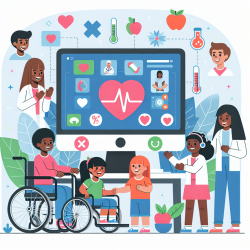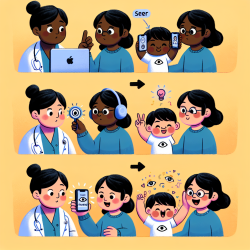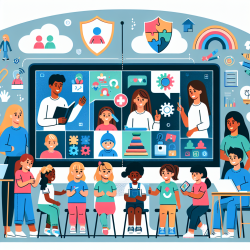Introduction
As a Special Education Director, I understand the importance of continuous professional development for mental health practitioners, especially when it comes to addressing the unique challenges associated with men's mental health. The research article titled "Supporting Clinical Competencies in Men’s Mental Health Using the Men in Mind Practitioner Training Program: User Experience Study" offers valuable insights into improving practitioner skills through targeted training programs.
Understanding the Men in Mind Program
The Men in Mind program is an innovative e-learning training initiative designed to enhance the competencies of mental health practitioners in engaging men in therapy. This program addresses the gap in practitioner training by focusing on gender-sensitized therapy, which is crucial for effectively reaching male clients who may struggle with traditional therapeutic approaches.
Key Findings and Implications
The study highlights several key outcomes from the Men in Mind program:
- Improved Practitioner Confidence: Participants reported increased confidence in engaging men, particularly those who have difficulty articulating emotions or are experiencing suicidality.
- Valuable Video Demonstrations: The inclusion of video role-plays showcasing skills in action was highly appreciated by practitioners, providing practical examples of effective therapeutic techniques.
- Evidence-Based Content: The program's content is grounded in evidence, offering insights into the intersection of masculinity and mental health, which helps practitioners tailor their approaches to male clients.
Suggestions for Practitioners
For practitioners looking to enhance their skills in men's mental health, consider the following recommendations based on the study's findings:
- Engage with E-learning Programs: Participate in e-learning programs like Men in Mind to gain a deeper understanding of gender-sensitized therapy and improve your ability to engage male clients.
- Utilize Video Resources: Leverage video demonstrations to observe and learn practical therapeutic techniques that resonate with male clients.
- Focus on Gender Sensitivity: Reflect on your own gender biases and consider how they may impact your therapeutic approach. Implement strategies that are specifically tailored to address the unique needs of male clients.
Encouraging Further Research
The Men in Mind program has demonstrated significant potential in improving practitioner competencies. However, further research is needed to explore its long-term impact on client outcomes and to refine the program for broader applicability. Practitioners are encouraged to stay informed about emerging research in men's mental health and to actively participate in ongoing training opportunities.
Conclusion
By embracing gender-sensitized approaches and engaging with innovative training programs like Men in Mind, practitioners can enhance their ability to effectively support male clients in therapy. This not only improves individual client outcomes but also contributes to the broader goal of reducing barriers to mental health care for men.
To read the original research paper, please follow this link: Supporting Clinical Competencies in Men’s Mental Health Using the Men in Mind Practitioner Training Program: User Experience Study.










